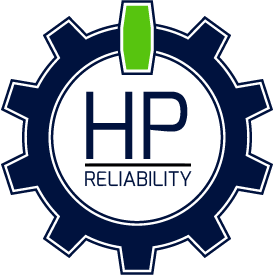The Key To Gaining The Ear Of Your Executives
 As a maintenance professional, you spend a lot of time explaining how a proper maintenance & reliability program will improve uptime, safety, etc. But why is it that there is a hard time gaining support for the improvement initiatives? Well, senior executives are focused on how the company is being a measure of performance from the shareholders, financial analysts, or owners. Most of these measures are financial in nature, and while there are others, the primary measures are financial.
As a maintenance professional, you spend a lot of time explaining how a proper maintenance & reliability program will improve uptime, safety, etc. But why is it that there is a hard time gaining support for the improvement initiatives? Well, senior executives are focused on how the company is being a measure of performance from the shareholders, financial analysts, or owners. Most of these measures are financial in nature, and while there are others, the primary measures are financial.
So with the senior executives focused on financial performance, shouldn’t you be able to speak to them in terms that will make an impact on them and what they are working to achieve? This is where learning to speak finance will have a huge impact on your ability to influence and gain support from the senior execs. There is not a requirement to get a degree in finance (although that will help), but a basic understanding of finance and it’s terms will go a long way.
Finance 101
Essentially finance is all about managing the cash inflow and cash outflow from the business. Cash outflow includes expenses such as operating expenses, capital expenses, wages, raw material costs, taxes, insurance, etc. While cash in-flow will include revenue, capital gains from investments, etc. The goal is to have more in-flow than outflow. Also, trying to make the expenses and revenues predictable is also critical. Sounds simple enough right?
There is a lot that goes into this, and I would recommend taking some time to learn more about it. LinkedIn Learning is an excellent resource to learn more about Finance cost-effectively.
Finance Terms
As with all other disciplines, there are many terms that are specific to the Finance. Here are some common terms that you should know;
- Revenue – is the amount of money that a company receives during a specific period, including discounts and deductions for returned merchandise. It is the top line or gross income figure from which costs are subtracted to determine net income.
- Expense – consists of the economic costs a business incurs through its operations to earn revenue.
- Asset – is a resource with economic value that an individual, corporation or country owns or controls with the expectation that it will provide future benefit.
- Liability – is a company’s financial debt or obligations that arise during the course of business operations. Liabilities are settled over time through the transfer of economic benefits including money, goods or services.
- Accounts Receivable – is the outstanding invoices a company has or the money the company is owed from its clients.
- Accounts Payable – is an accounting entry that represents an entity’s obligation to pay off a short-term debt to its creditors.
- Gross Margin – is a company’s total sales revenue minus its cost of goods sold (COGS), divided by total sales revenue, expressed as a percentage.
- Net Margin – the ratio of net profits to revenues for a company or business segment.
- Cost of Goods Sold – is the direct costs attributable to the production of the goods sold in a company.
- Gross Profit – is the profit a company makes after deducting the costs associated with making and selling its products, or the costs associated with providing its services.
- EBITDA – stands for earnings before interest, taxes, depreciation, and amortization.
- Net Return on Assets – is a measure of financial performance calculated as net income divided by fixed assets and net working capital.
- Balance Sheet – is a financial statement that summarizes a company’s assets, liabilities and shareholders’ equity at a specific point in time.
There are many more terms, and each one of the terms can be covered in much more depth. But that is the point of this post, and that is to identify the need for maintenance & reliability professionals to understand the other aspects of business, not just the technical engineering aspects.
Get Support!
If you are a listener of the Rooted in Reliability podcast, you may have heard Fred Schenkelberg mention making friends with the Finance Person or Accountant at your plant. This is a great way to gain some additional support in building your business case and learning the right terms to use when presenting your business case. Also, most plant managers will have finance or accounting review the business, so why not get ahead of it.
By involving finance in your ideas and having them understand what you are trying to achieve, they may be able to provide insights and other ideas on how to generate additional savings, or better sell the improvement.
What have you found to help you sell your maintenance & reliability improvements to senior execs? What have you found that hindered your ability to sell improvement sot senior execs? Please share your thoughts?
If you need help in preparing a business case for your maintenance & reliability program, please contact [email protected] for assistance. Remember, to find success; you must first solve the problem, then achieve the implementation of the solution, and finally sustain winning results.
I’m James Kovacevic
Eruditio, LLC
Follow @EruditioLLC

